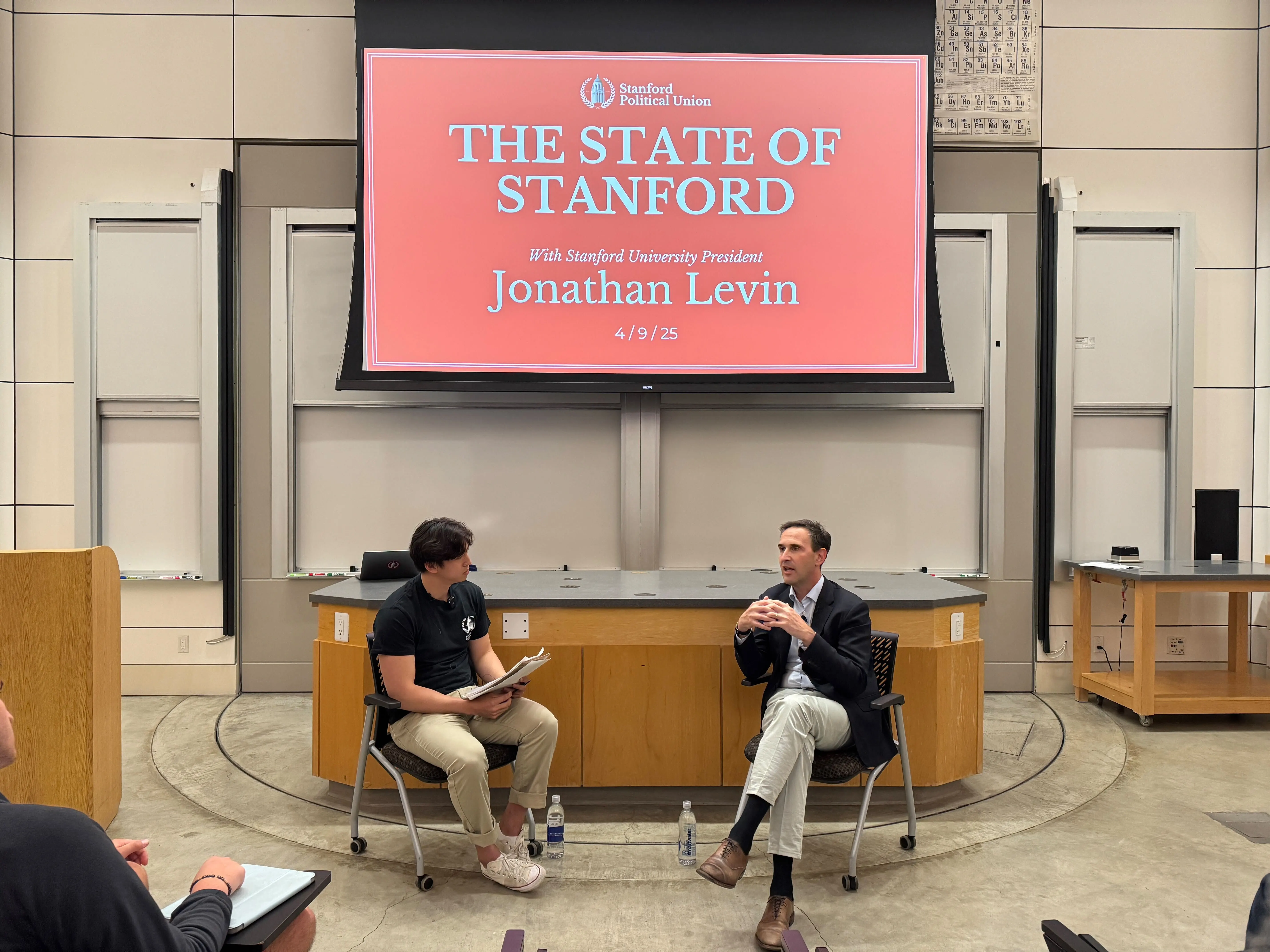University president Jonathan Levin ’94 said that Stanford was working with international students whose visas were revoked and affirmed the importance of international community members and academic freedom at a Thursday Stanford Political Union (SPU) event.
The event came amid a series of actions by the Trump administration targeting higher education across the country, including funding freezes, student visa revocations and the detention of students by Immigration and Customs Enforcement (ICE).
The University is working with students who had their visas revoked on a one-on-one basis to decide the best course of action and continue their academic progress, according to Levin. Levin said that the “idiosyncratic” reasons for the revocations were unrelated to activism and that revocations were independent of each other and had “no consistent pattern in any country.”
In recent weeks, dozens of university students actively involved in pro-Palestinian activism have been detained by federal immigration authorities or lost their visas.
Last week, a federal judge ruled that Columbia University graduate Mahmoud Khalil, a legal permanent resident who was detained last month due to his involvement in pro-Palestinian activism, could be deported.
ICE agents also detained Tufts University graduate student Rumeysa Ozturk in Somerville, Mass. last month. Ozturk co-wrote an op-ed last year calling for Tufts to “acknowledge the Palestinian genocide.”
Levin said he thought the University “has a lot to be proud of” regarding its support for Stanford’s Jewish population amid the Trump administration’s scrutiny of universities for their stance on anti-semitism.
Levin cited the University’s collaboration with the Muslim, Arab, and Palestinian Communities Committee and the Subcommittee on Antisemitism and Anti-Israeli Bias, which formed after the onset of the Israel-Hamas war in 2023.
One point Levin introduced was that the federal government’s historical support for scientific research funding has enabled Stanford to become a “great global university” and produce innovations with global significance.
In February, the National Institutes of Health (NIH) announced that it would significantly reduce research funding for “indirect costs,” with Stanford set to lose $160 million annually.
Levin said that it was important to explain “what makes a place like Stanford so special” at a time when “everyone is questioning the value of universities.”
“It is an enormous asset to the country that American universities like Stanford are able to attract students from all over the world,” he said. International students are admitted because they are “outstanding,” rather than through a “discriminatory process,” he added.
Levin also said that there has been much discussion and cooperation between universities on certain issues, such as the Association of American Universities’ (AAU) lawsuit challenging NIH cuts. On other issues, however, he said that “there could and should be more cooperation.”
Attendee William Gibbs ’28 said that while he wished for more specificity from Levin, the event reduced concerns he had about federal funding cuts and risks facing international students.
“I think what I enjoyed most was that it was clear there was a framework [for the University’s response]. It was clear there was almost a method to the madness,” Gibbs said. He added that it was a relief to hear the visa revocations were unrelated to political activism.
Attendee Rehman Hassan ’27 said he was happy that Levin was engaging with the student body and hoped for more student engagement from deans.
SPU President YuQing Jiang ’25, a former editor for The Daily, affirmed the organization’s mission to provide an inclusive space for constructive dialogue and said the event aimed to be “open and accessible to the entire Stanford community.”
“We’re not a club that’s seeking to create social change or championing a particular course,” Jiang said. “We are just providing a space where people can come together.”
